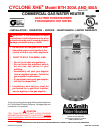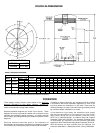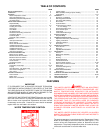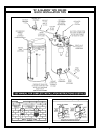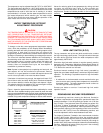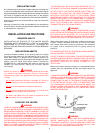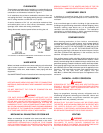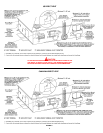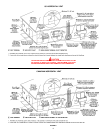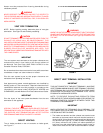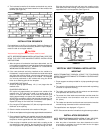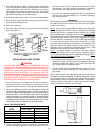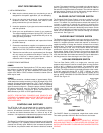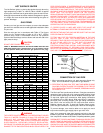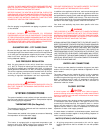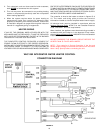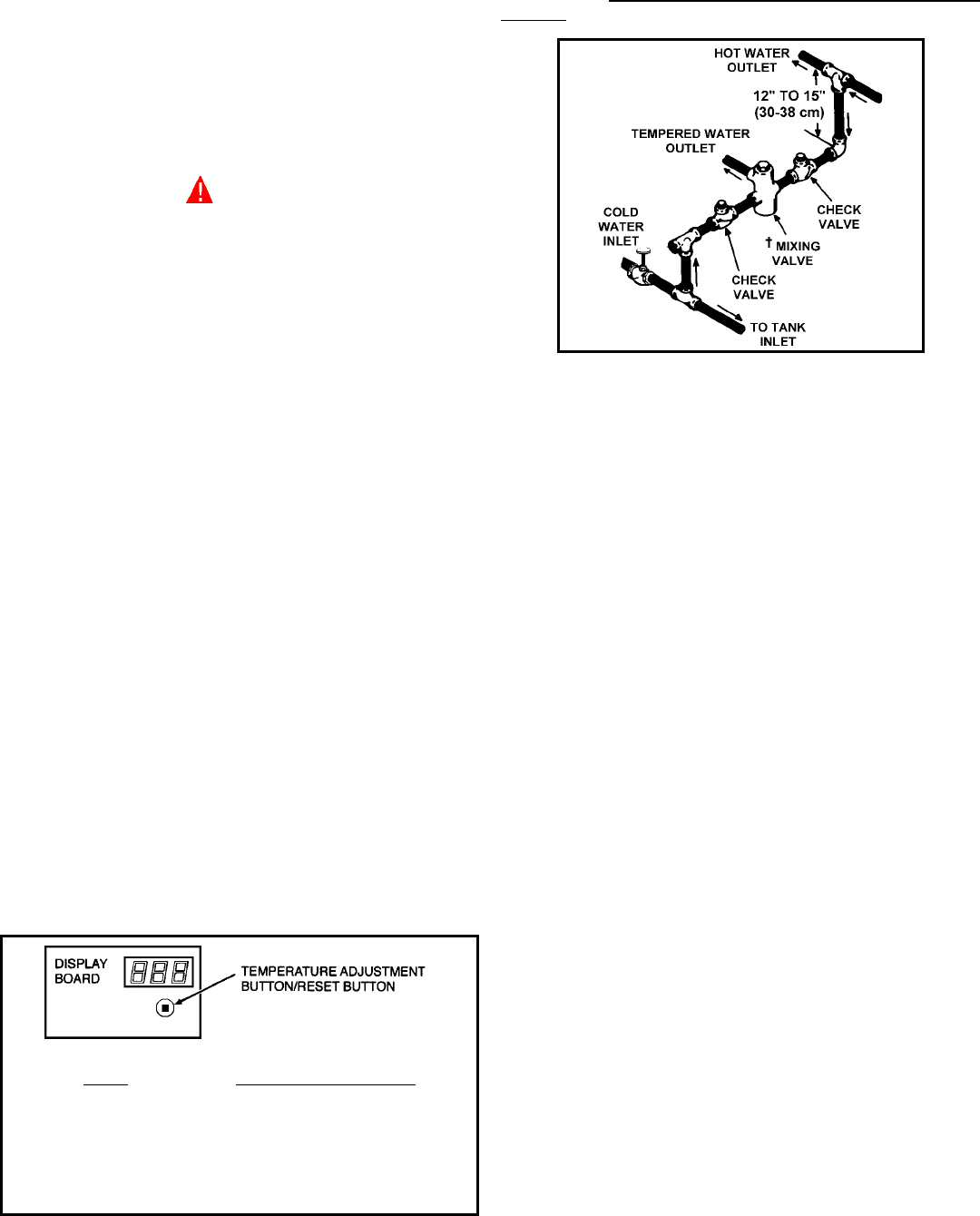
5
The temperature may be adjusted from 80°F/27°C to 180°F/82°C.
The thermostat was adjusted to 120°F/49°C before the heater
was shipped from the factory. It is recommended that lower water
temperatures be used to avoid the risk of scalding. It is further
recommended, in all cases, that the water temperature be set for
the lowest temperature which satisfies your hot water needs.
This will also provide the most energy efficient operation of the
water heater and minimize scale formation.
WATER TEMPERATURE SETPOINT
ADJUSTMENT PROCEDURE
CAUTION
THE TEMPERATURE OF THE WATER AT THE TANK OUTLET MAY
NOT CORRESPOND TO THE TEMPERATURE SETPOINT
PROGRAMMED IN THE CONTROLLER. THE USER CAN EASILY
CHANGE THE TEMPERATURE SETPOINT AT ANY TIME BY USING
THE FOLLOWING PROCEDURE. IN ALL CASES, INPUT POWER
MUST BE APPLIED TO THE CONTROLLER TO PERFORM ANY
PROGRAMMING OPERATIONS.
To change or view the current programmed temperature setpoint
value, utilize the pushbutton on the Display Board. Momentarily
pressing the button will briefly illustrate the existing setpoint value.
If the button is held down for more than one second, the
programming mode is automatically entered and the setpoint value
will begin incrementing or decrementing by one degree per second.
The control will alternate between between the incrementing or
decrementing mode each time the button is pressed. When the
desired setpoint value is reached, simply release the button and
the controller will automatically retain this value in temporary
memory. After one complete heat cycle, the new setpoint is
transferred to permanent memory.
Note: If power is interrupted prior to completing one heat cycle, the
new setpoint will not be transferred to permanent memory.
Therefore, it is a good practice to recheck the setpoint value at the
end of a heat cycle after a new value has been entered.
If the button is held down long enough, the setpoint will reach 70°F
(the minimum value) and stop. At this point, if the desired setpoint
has not been obtained, release the button and depress it again.
The setpoint value will now restart at 70°F and once again increase
in value for as long as the button is pressed.
Figure 1 shows the approximate time-to-burn relationship for normal
adult skin. Short repeated heating cycles caused by small hot water
uses can cause temperatures at the point of use to exceed the thermostat
setting by up to 20°F (11C°). If you experience this type of use, you should
consider using lower temperature settings to reduce scald hazards.
Temperature Time to Produce 2nd & 3rd
Setting Degree Burns on Adult Skin
180°F / 82°C Nearly instantaneous
170°F / 77°C Nearly instantaneous
160°F / 71°C About 1/2 second
150°F / 66°C About 1-1/2 seconds
140°F / 60°C Less than 5 seconds
130°F / 54°C About 30 seconds
120°F / 49°C More than 5 minutes
FIGURE 1.
Valves for reducing point-of-use temperature by mixing cold and
hot water are available (see Figure 2). Also available are
inexpensive devices that attach to faucets to limit hot water
temperatures. Contact a licensed plumber or the local plumbing
authority.
FIGURE 2.
HIGH LIMIT SWITCH (E.C.O.)
The top immersion well of the dual bulb controller also contains
the high limit (energy cutoff) sensor. The high limit switch interrupts
the main burner gas flow should the water temperature reach
approximately 202°F/94°C.
Should the high limit switch activate, it must be manually reset by
depressing the Temperature Adjustment Button/Reset Button on
the display board. The water temperature must drop below 160°F/
71°C before the controller can be reset.
Continued manual resetting of high limit control, preceded by
higher than usual water temperature is evidence of high limit switch
operation. The following is a possible reason for high limit switch
operation.
• A malfunction in the thermostatic controls would allow the gas
valve to remain open causing water temperature to exceed the
thermostat setting. The water temperature would continue to
rise until high limit switch operation.
Contact your dealer or servicer if continued high limit switch
operation occurs.
DISHWASHING MACHINE REQUIREMENT
All dishwashing machines meeting the National Sanitation
Foundation requirements are designed to operate with water flow
pressures between 15 and 25 pounds per square inch (103 Kpa
and 173 Kpa). Flow pressures above 25 pounds per square inch
(173 Kpa), or below 15 pounds per square inch (103 Kpa), will
result in improperly sanitized dishes. Where pressures are high, a
water pressure reducing or flow regulating control valve should be
used in the 180°F (82°C) line to the dishwashing machine, and
should be adjusted to deliver water between these limits.
The National Sanitation Foundation also recommends circulation
of 180°F (82°C) water. Where this is done, the circulation should
be very gentle so that it does not cause any unnecessary turbulence
inside the water heater. The circulation should be just enough to
provide 180°F (82°C) water at the point of take-off to the dishwashing
machine. Adjust flow by means of the plug cock in the circulating
line. (See installation diagrams.)



